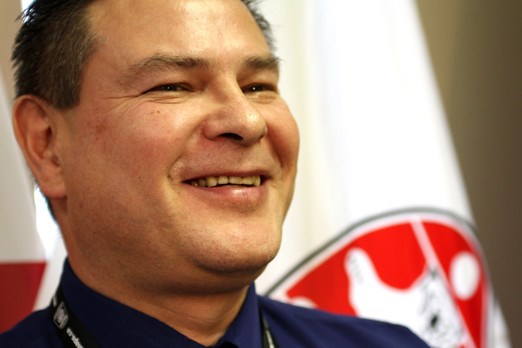Claude Chum says more police officers are needed to ensure the safety of residents of Ontario’s northern First Nations communities.
Chum, who takes over the reins of the Nishnawbe-Aski Police Services at the dawn of the new year, said rampant crime and violence found in communities cannot be properly dealt with under current staffing models.
"Funding is probably the biggest issue for police services. Right now a number of communities up North don’t have the basic police protection, like, for example, the police service in Thunder Bay," Chum said on Thursday.
"A police officer here can call for back-up and a back-up will be there in minutes. In our Northern communities, that’s not the case. Most times our officers are working alone. Most times our officers are working without a radio and have no contact to a communications system. All they have is access through a telephone system, which is not 100 per cent all of the time."
Chum said he plans to have continued dialogue with both the federal and provincial governments to see what can be done to increase funding. In the interim, he said he’ll take advantage of an OPP offer to help NAPS cover their shortage, freeing up more officers to be in the remotest of communities under the department’s jurisdiction.
Acknowledging a growing prescription drug problem on many reserves, once again it goes back to resources, Chum said.
But, he added, it’s also important to create a better connection between NAPS officers and the people they serve. Only then can true healing of the communities begin.
He pointed to Eabametoong First Nation, where a series of murders, arsons and animal mutilation led Chief Lewis Nate to declare a state of emergency in October.
Better community-style policing methods won’t happen overnight, he said, but he’s a big believer in its effectiveness and plans to work toward when he takes over from outgoing chief Robin Jones on Jan. 1.
"I want to get my police officers working with the people in our communities. I want to get police committees established in our communities. I know there are some running right now in our communities.
"We have to get our communities to work with our police officers to start identifying what the issues are that are causing social disorder. Once we figure out what the root causes are, what’s causing the social disorder, then we can start forming action plans working with community stakeholders … getting then involved with the police, making the community better and safe."
Most of the problems are social problems, not policing problems. Police, however, have to deal with the consequences, Chum said.
"We need the communities to help us solve these problems. The police can’t do it alone. We’ve been trying to do it alone in the reactive mode for a long time. But one of the things we have to look at is five to 10 years down the road and what the police service is going to be doing five to 10 years down the road.
Chum is bringing 21 years of policing experience to the role, including time at every rank available to officers in Ontario. The Moose Cree native’s spent time working for the OPPs First Nations Program. He also spent time with the Anishnawbek Police Services.
Sign in or register
- Messages
- Post a Listing
- Your Listings
- Your Profile
- Your Subscriptions
- Your Likes
- Your Business
- Support Local News
- Payment History
Registered Users
Already have an account?
New Users
Create a free account.
